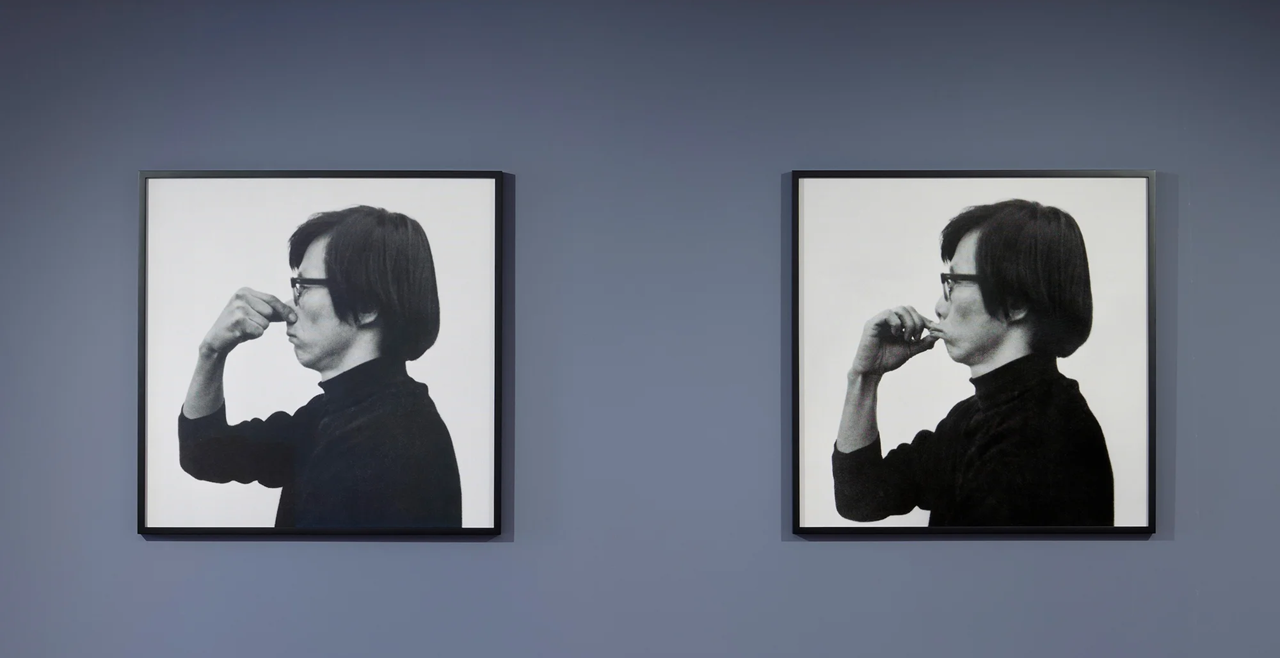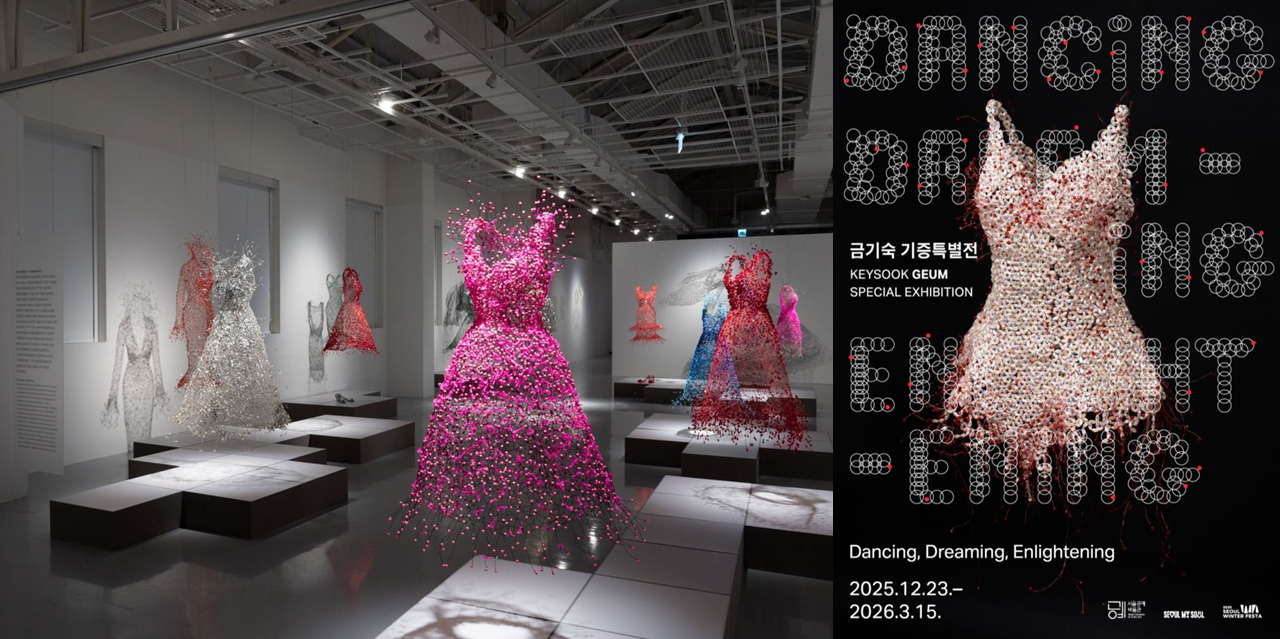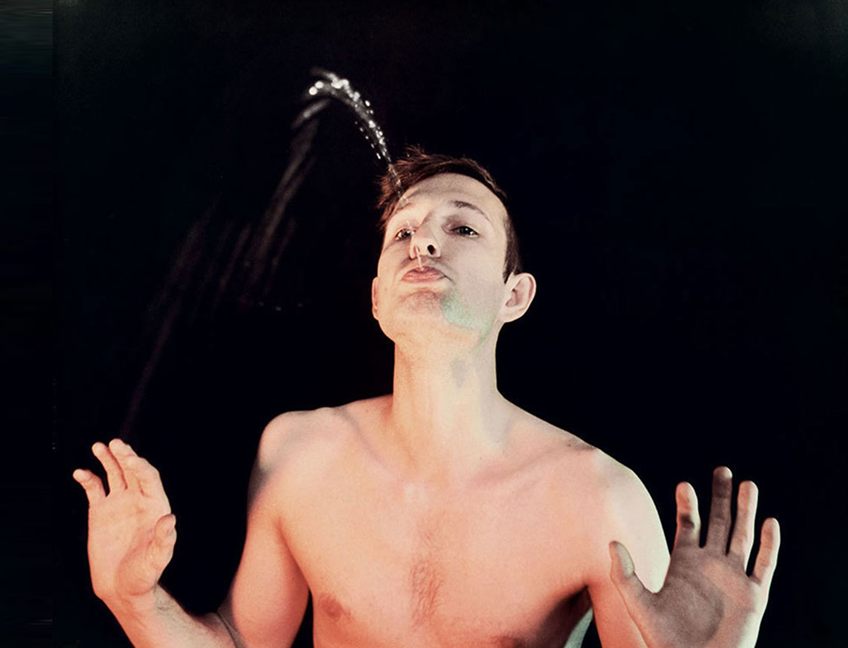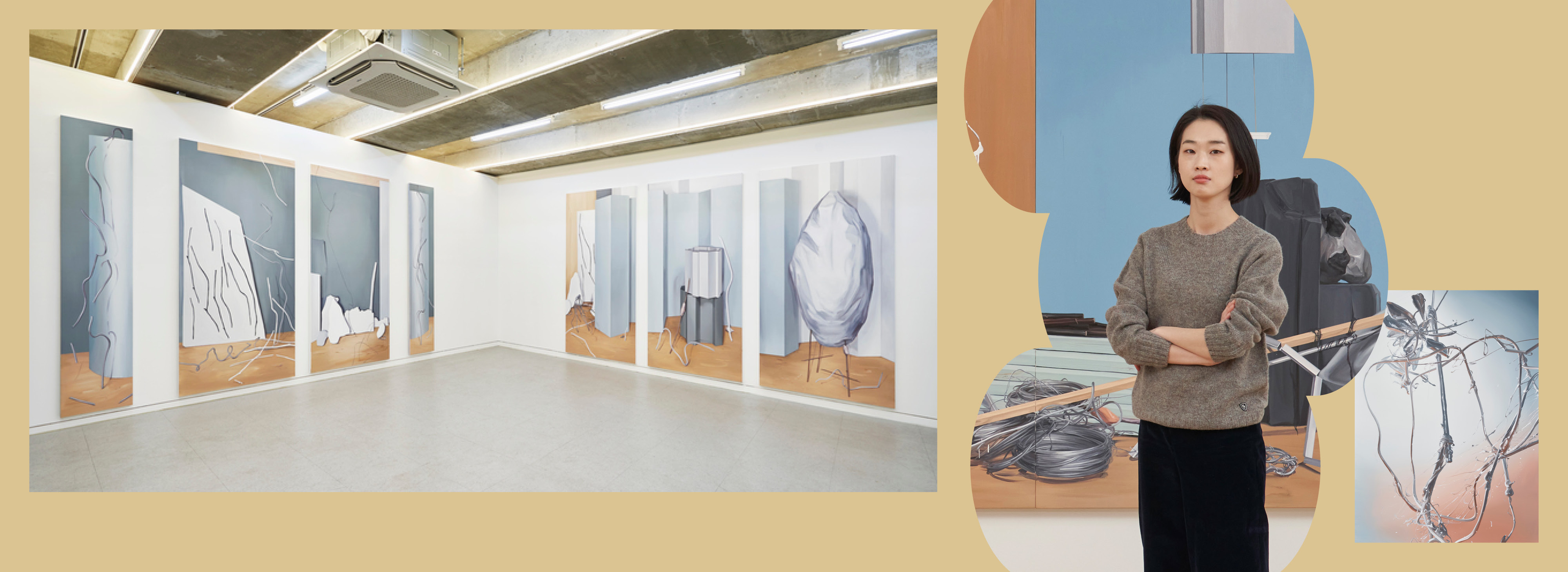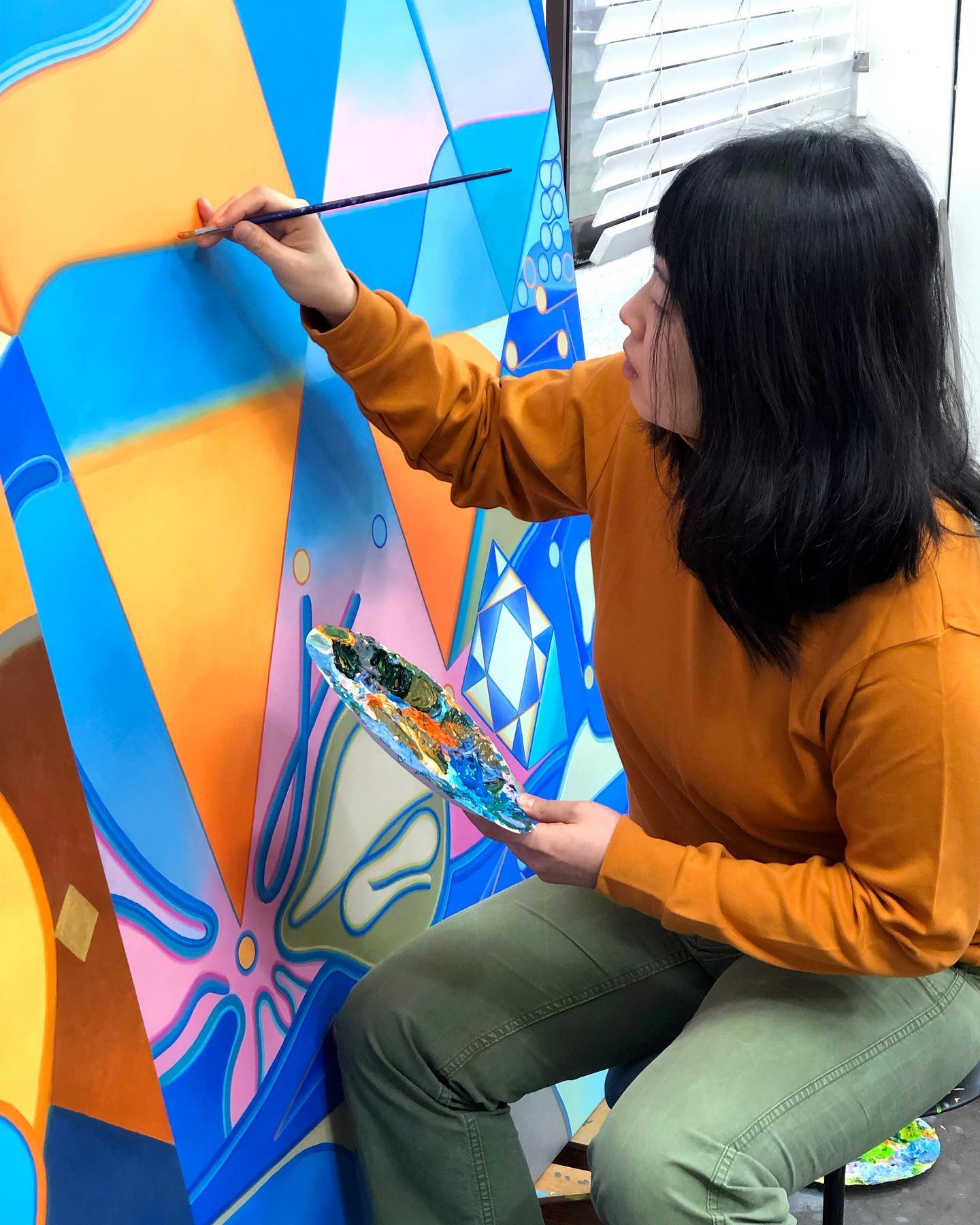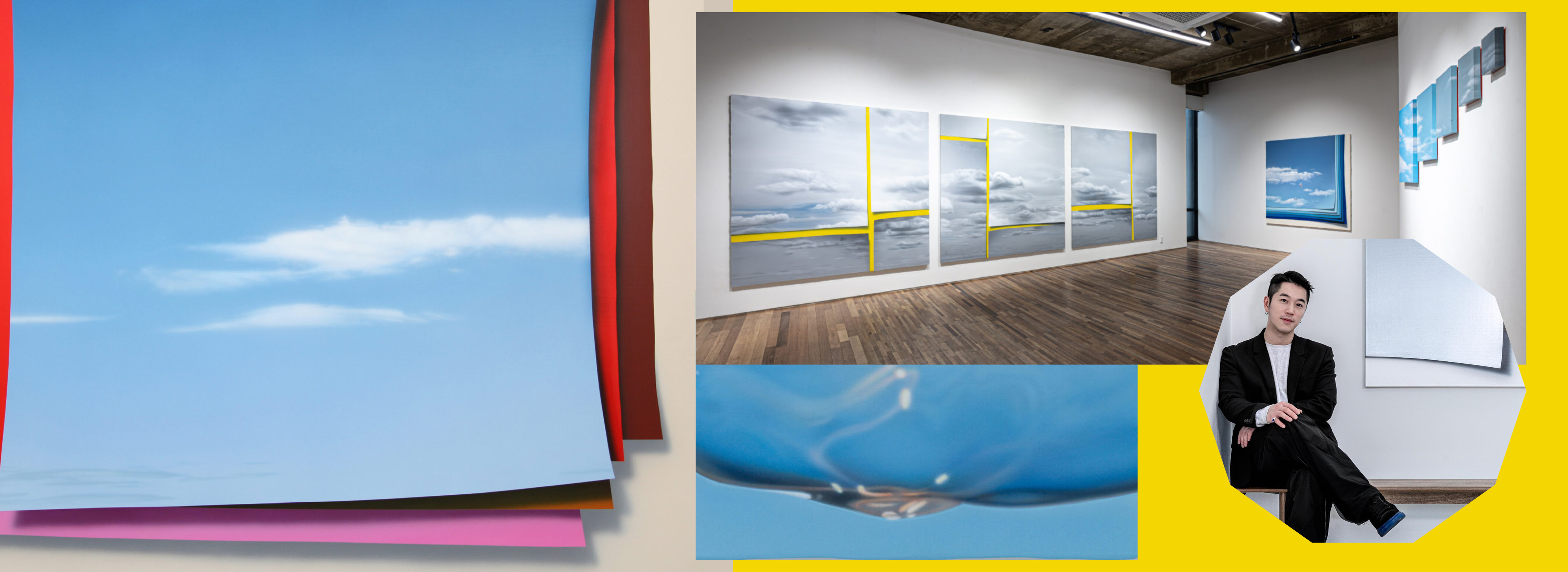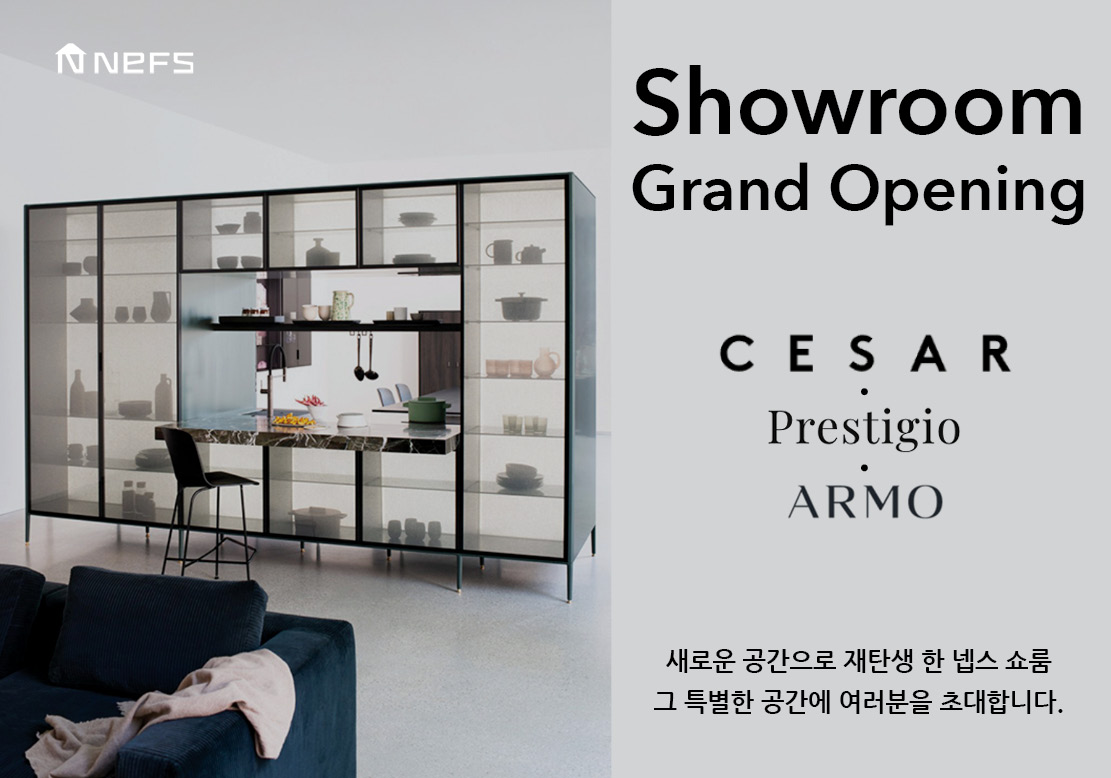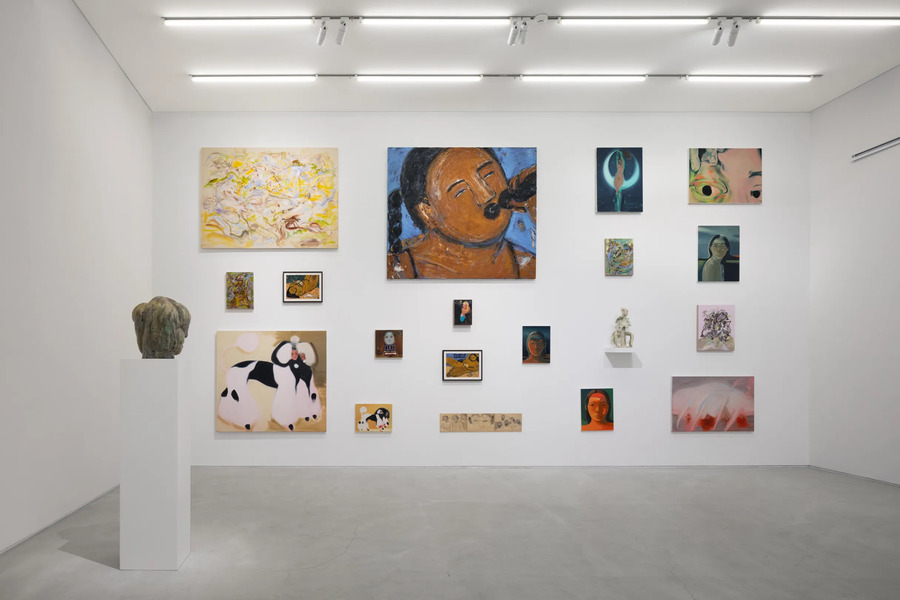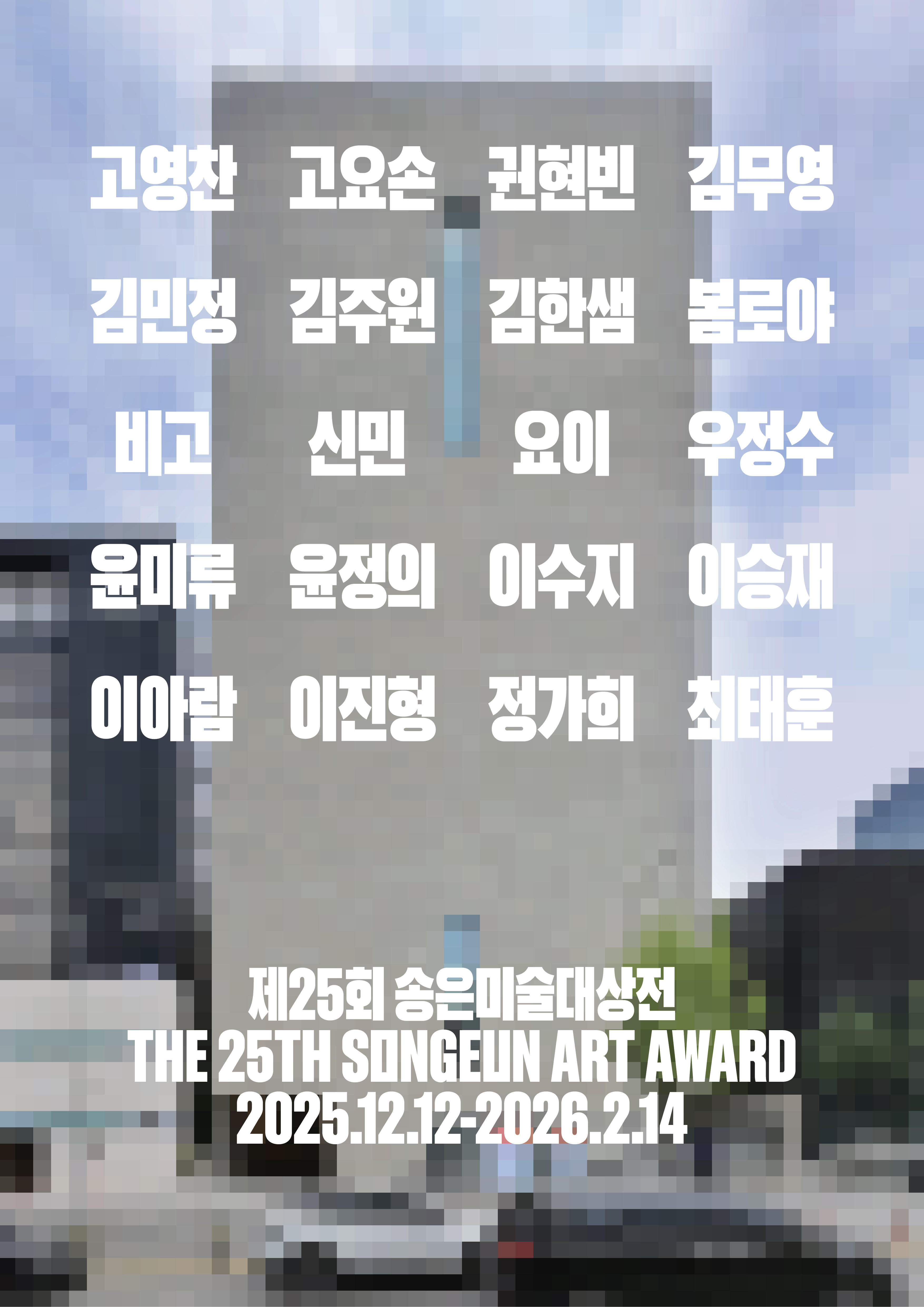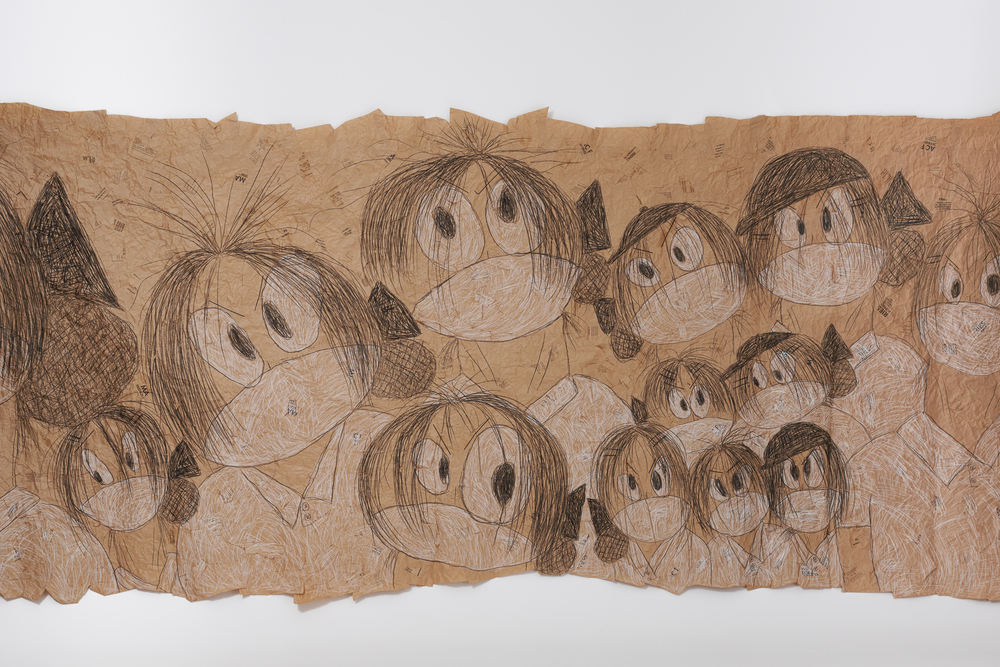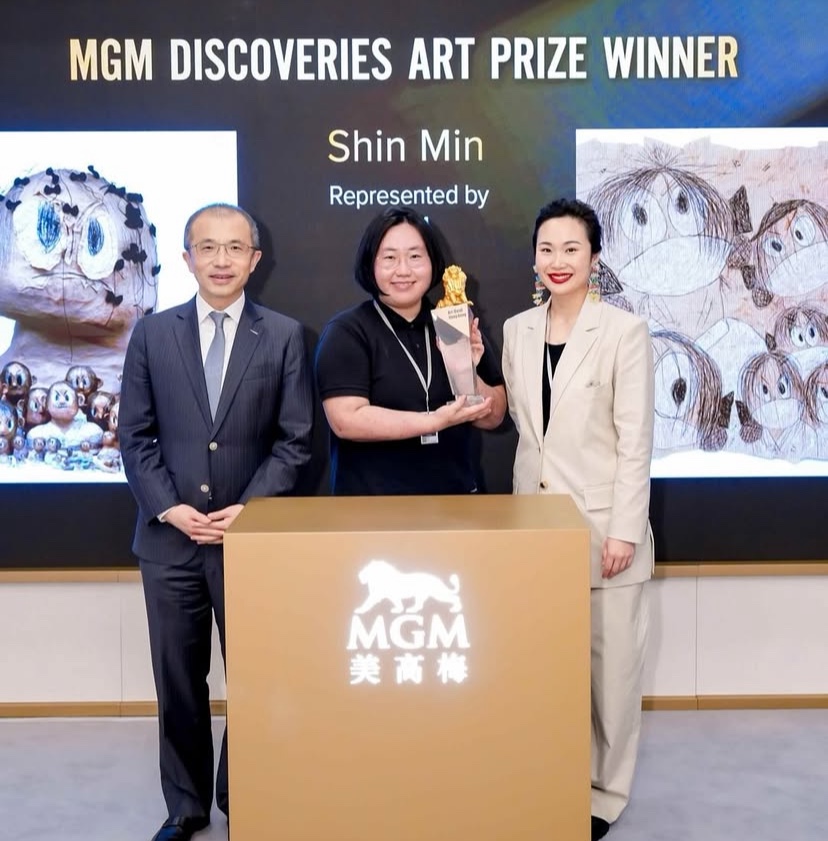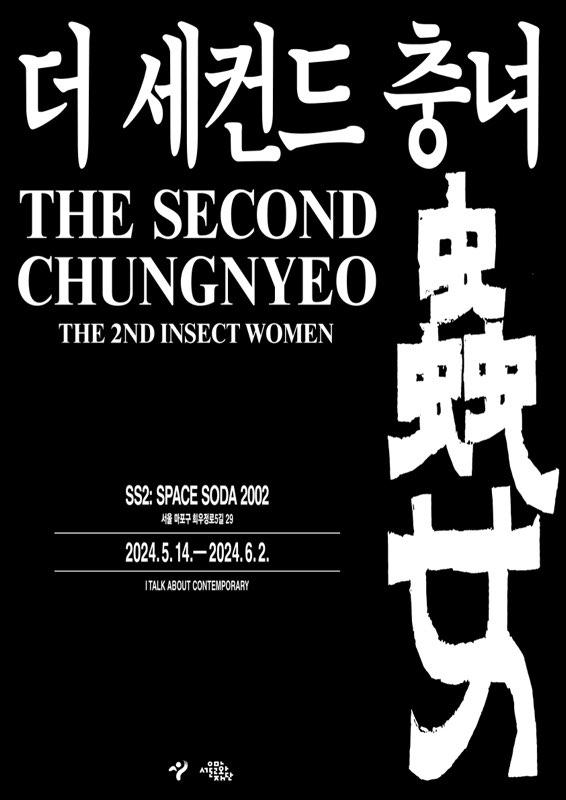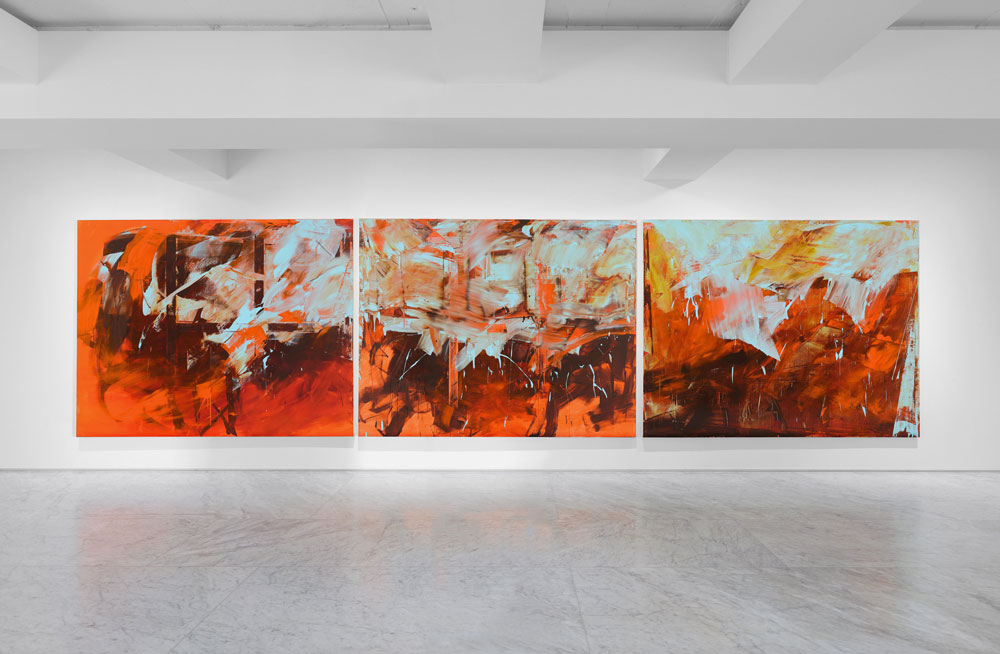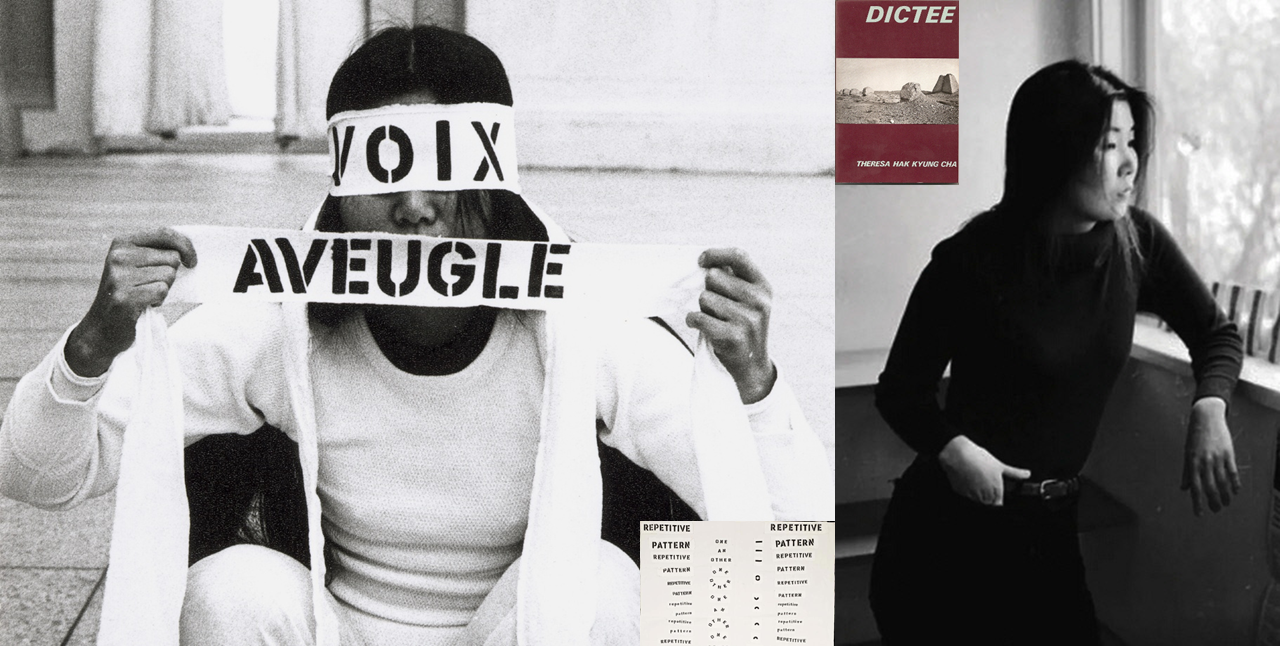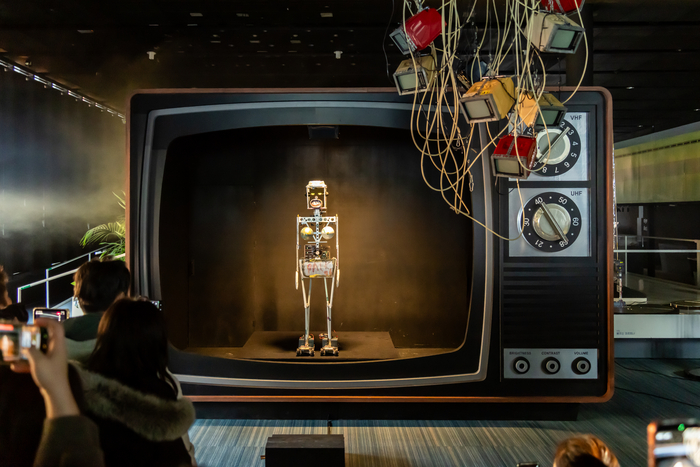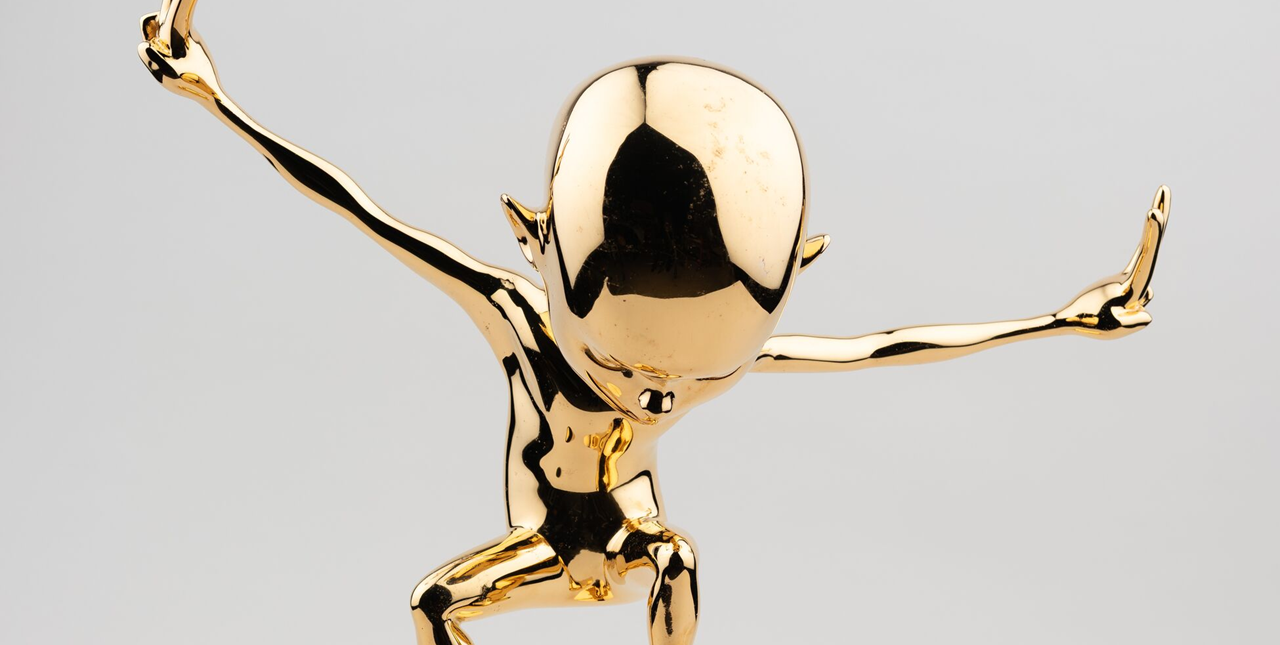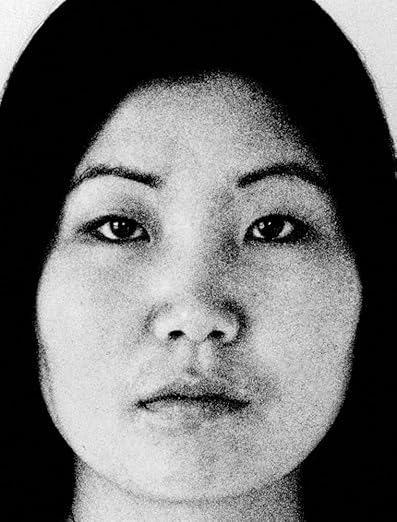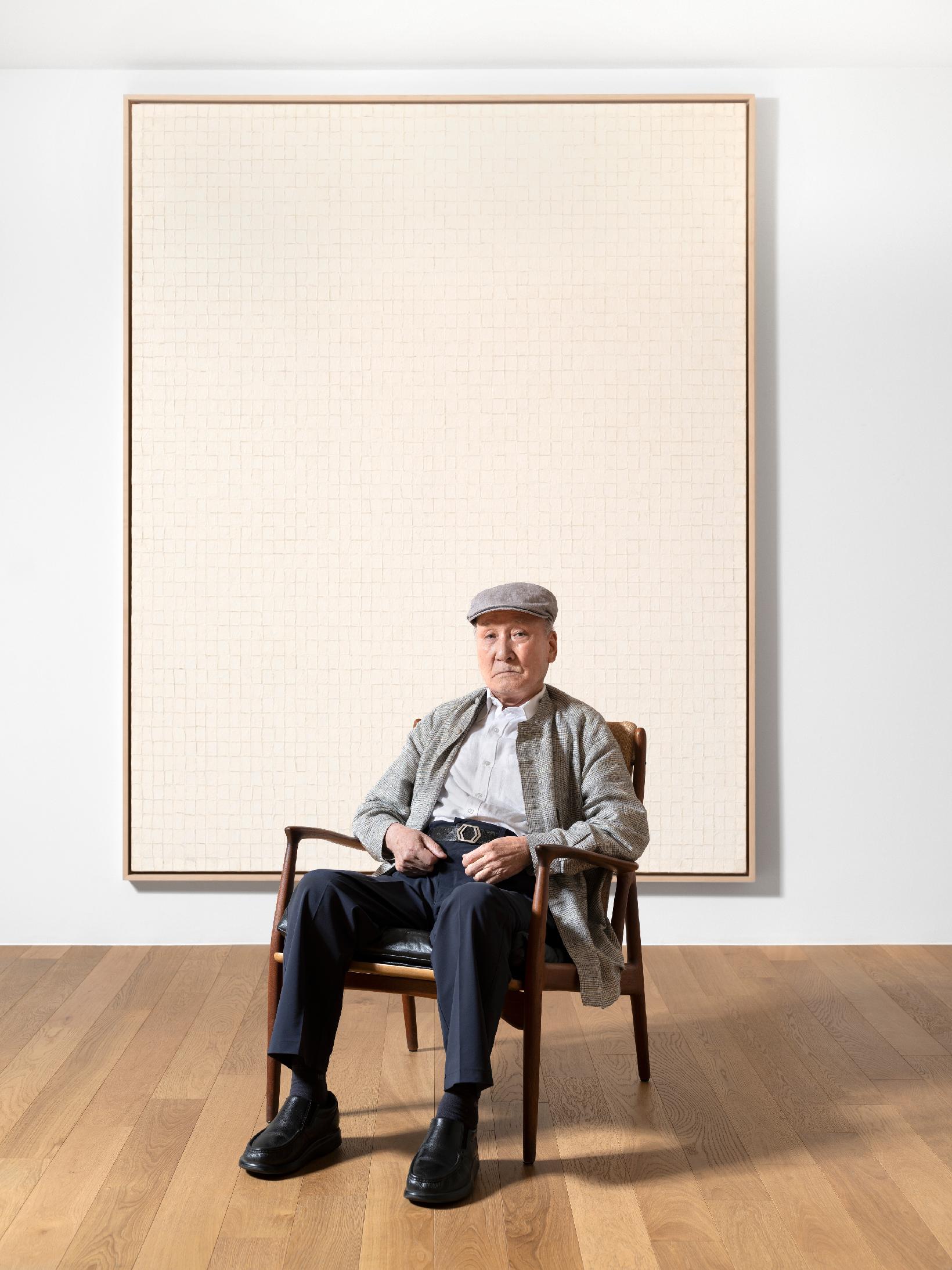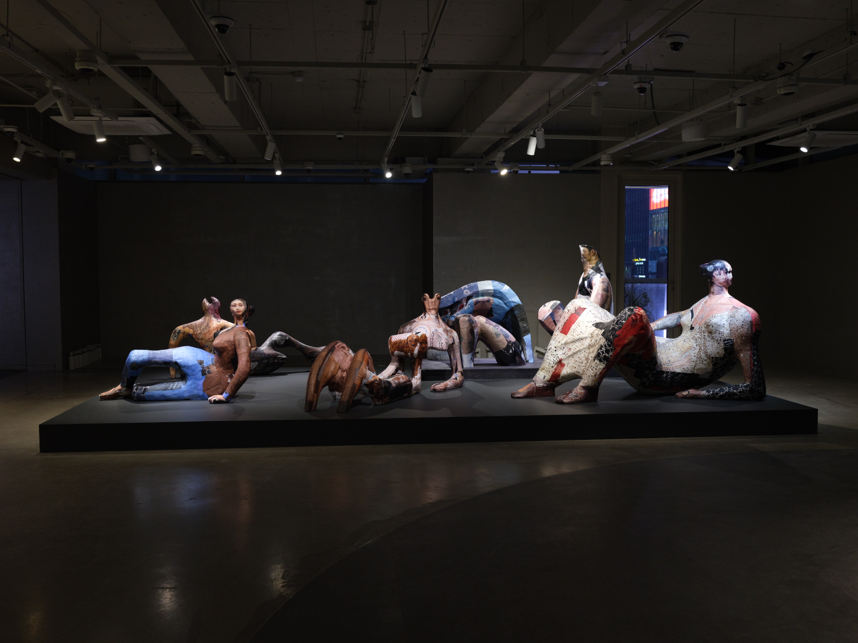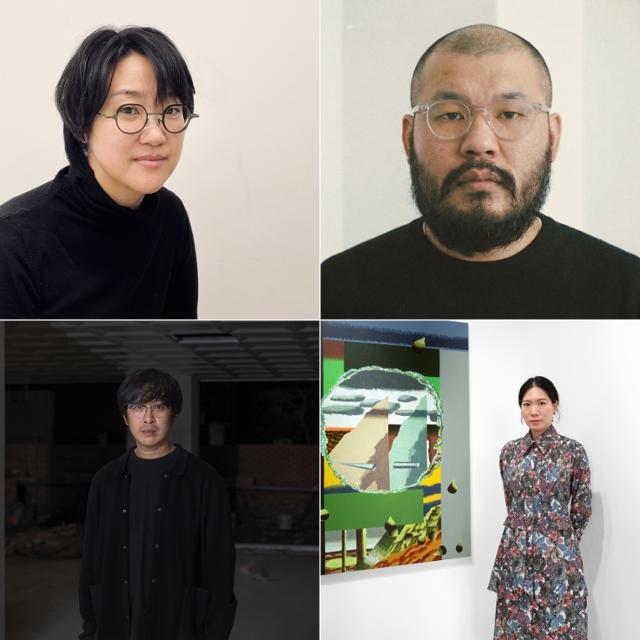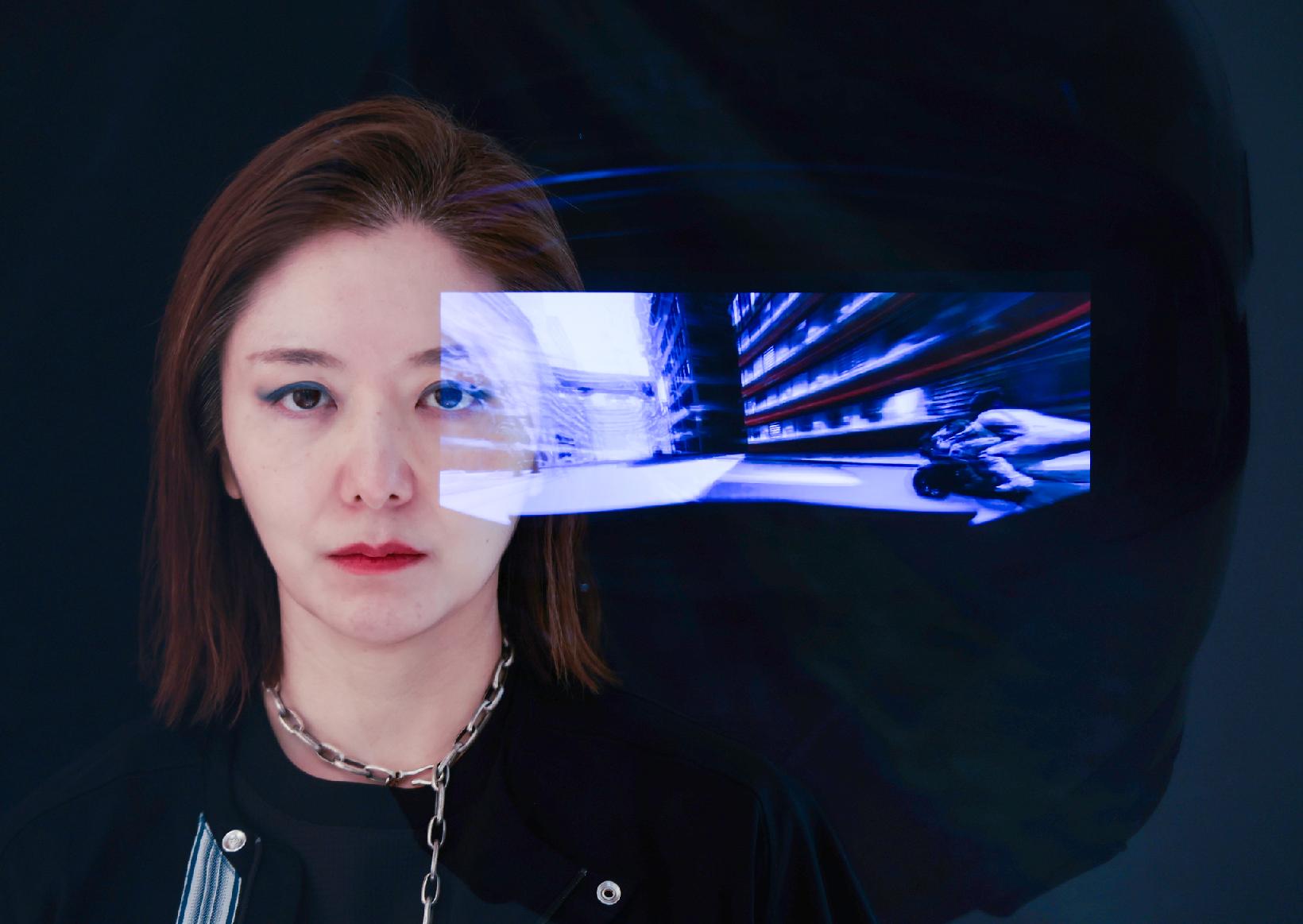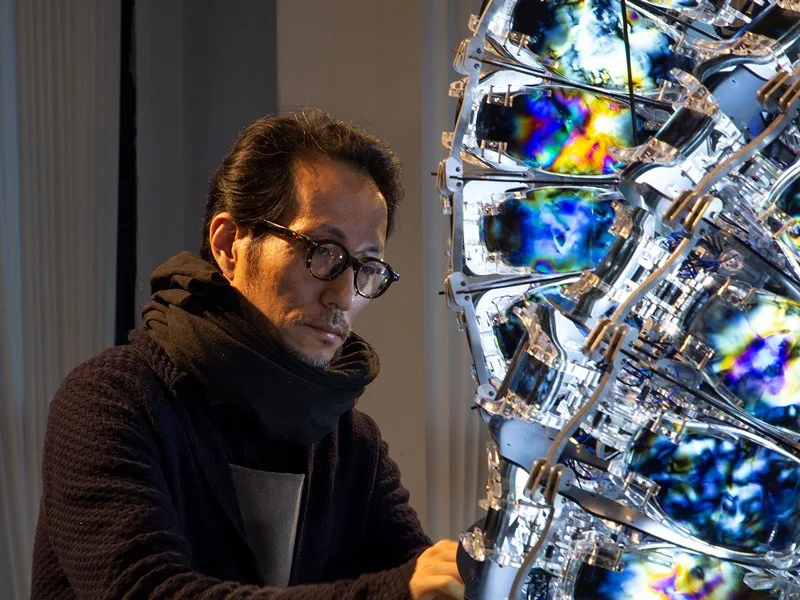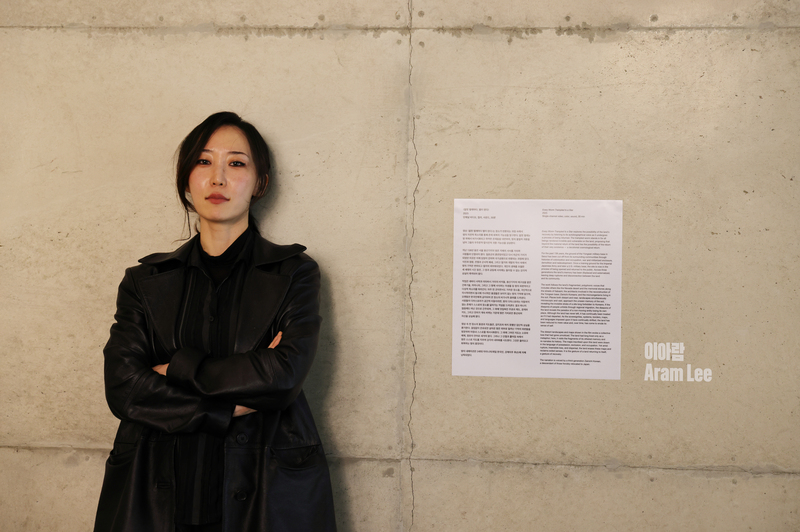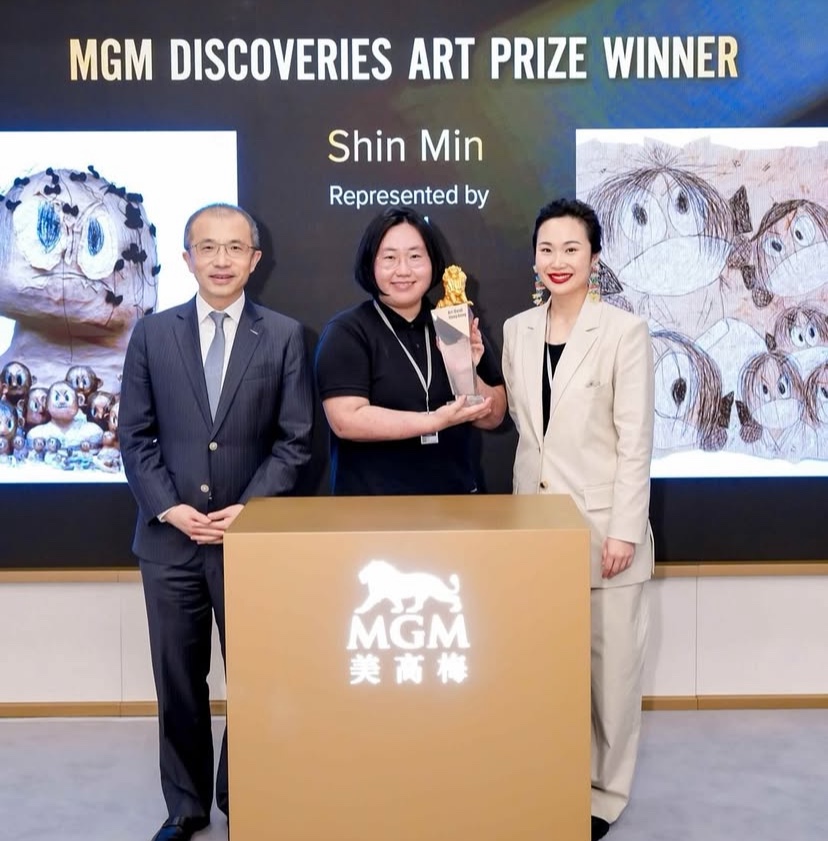 MGM Discoveries Art Prize
Winner : Shin Min / Courtesy of Art Basel
MGM Discoveries Art Prize
Winner : Shin Min / Courtesy of Art BaselKorean artist Shin Min (b. 1985) has been awarded the
first-ever MGM Discoveries Art Prize at Art Basel Hong Kong 2025,
earning international attention for her poignant and politically charged work.
Represented by P21 Gallery in the fair’s Discoveries section,
Shin was selected as the sole winner among three shortlisted artists, receiving
a $50,000 prize and an upcoming solo exhibition opportunity in
Macau.
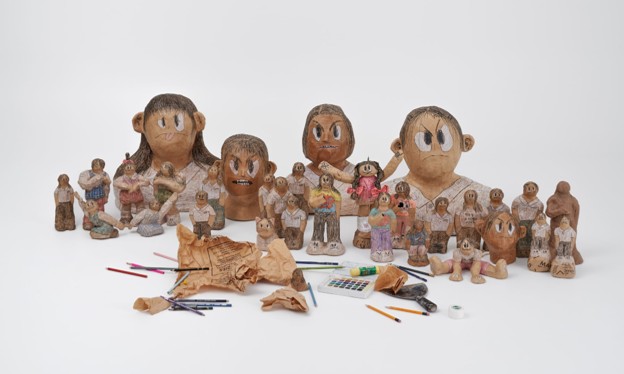
Installation view of Shin Min's Usual Suspect at Art Basel Hong Kong 2025 / Courtesy of Art Basel Hong Kong
The jury praised Shin’s work as “a portrait of women
enduring within a rigid social structure—an homage to their perseverance.” Art
Basel also listed her work among the “8 Must-See Works” at the 2025
edition.
Paper, Anger, and Solidarity:
Sculpting Resistance
Drawing on her own experiences working in fast-food chains
and cafés to support herself, Shin Min explores how female service workers,
often required to wear hairnets, are monitored, objectified, and
systemically marginalized under capitalist structures.
Her materials—paper, clay, pencil, and crayon—may seem soft and
ephemeral, but they bear the weight of rage, exhaustion, and resilience. Shin’s
sculptures are not mere forms; they are living narratives.
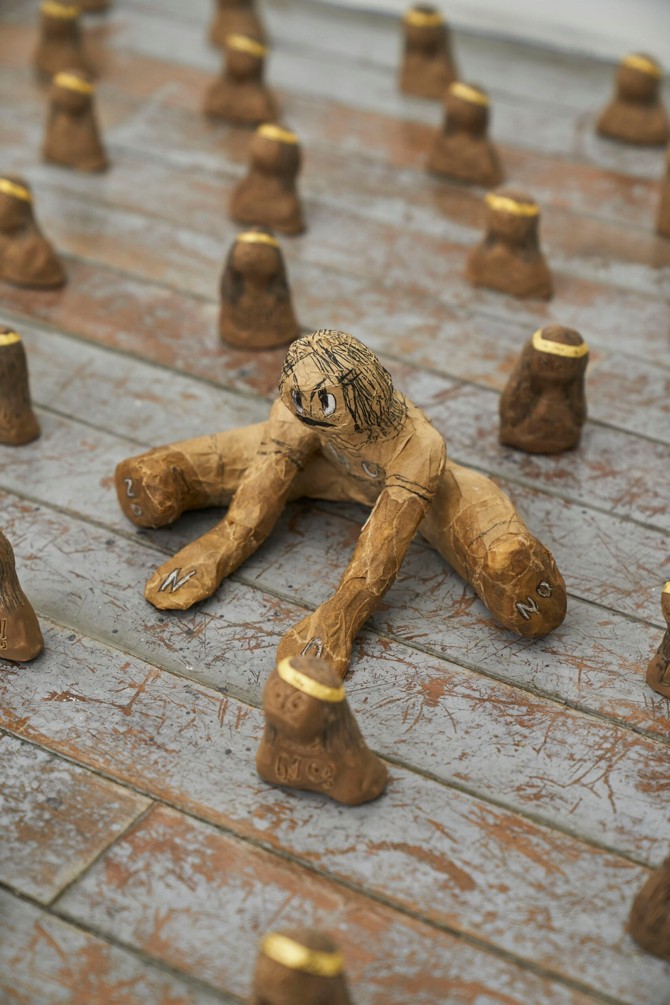
«Genre Allegory – Sculptural», 2018, Total Museum of Art
Art Rooted in Experience: Faces
of Invisible Labor
Her ongoing series ‘Usual Suspect’ takes its name
from the way service workers are scrutinized through CCTV footage to identify
who “dropped a hair” when customer complaints arise.
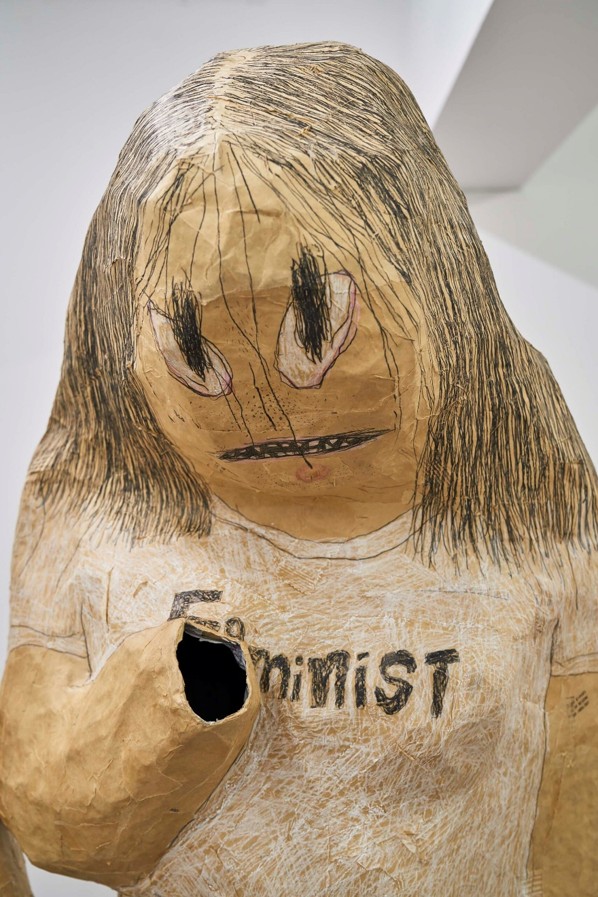
«Genre Allegory – Sculptural», 2018, Total Museum of Art
One
notable work from this series, titled Yuck! There’s Hair in My Food,
transforms that absurd yet disturbingly real scenario into a striking
installation.
Each
sculpture is crafted by layering more than ten sheets of oiled paper over a
clay form, then drawn and colored with crayon. Their exaggerated
features—furrowed brows, bulging eyes, open mouths—defy the forced smiles and
submissiveness expected in the service industry. Shin’s figures embody
unapologetic anger.
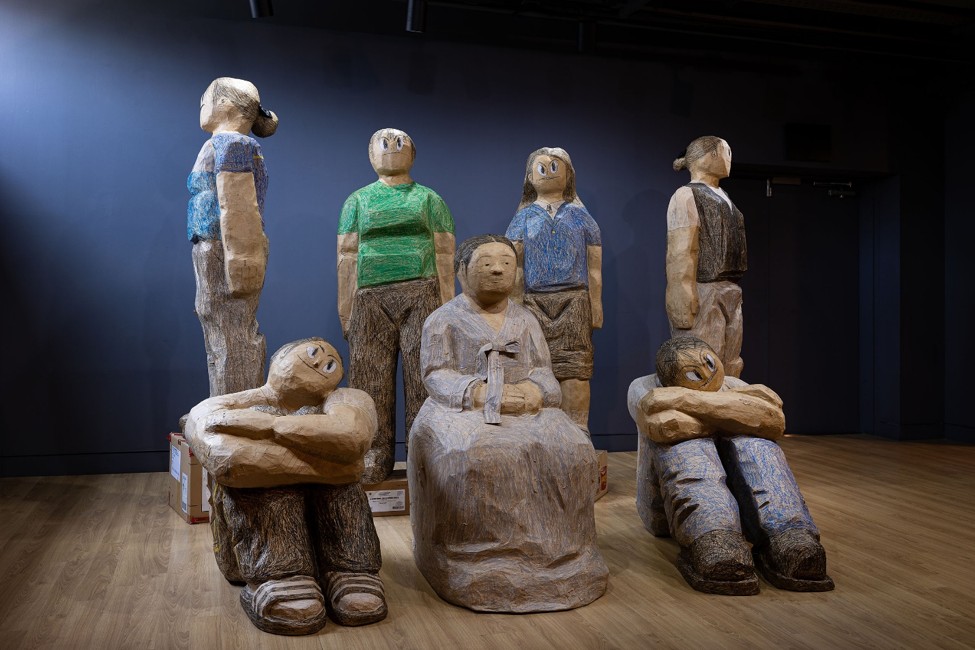 «Special Exhibition for the
10th Anniversary of Lee So-sun – Voice», 2021, Jeon Tae-il Memorial Hall
«Special Exhibition for the
10th Anniversary of Lee So-sun – Voice», 2021, Jeon Tae-il Memorial Hall
Capitalism Felt Through the Body,
Imprinted on Paper
While working at McDonald’s, Shin was struck by the sheer
volume of discarded French fry sacks, which she came to see as metaphors
for disposable labor. Her 2014 sculpture Part-Time Worker in
Downward Dog Pose uses actual McDonald’s fry bags wrapped over
figures wearing hand-drawn uniforms. “I used the residue of poverty to depict
poverty,” she explains.
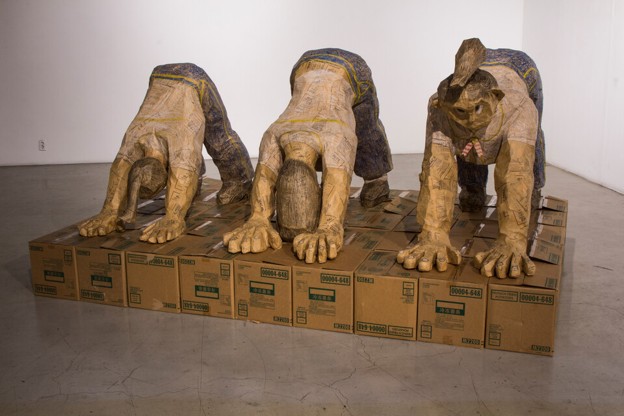 «Part-Time Worker in Downward
Dog Pose» Exhibition View, 2014 / Photo: Shin Min, Courtesy of Women’s Economic
Daily
«Part-Time Worker in Downward
Dog Pose» Exhibition View, 2014 / Photo: Shin Min, Courtesy of Women’s Economic
DailyHer use of the black satin-ribbon hairnet, a ubiquitous symbol of Korean service workers, recurs throughout her practice. In works like ‘Our Prayer’, the hairnet-wearing figures no longer appear submissive. Their piercing eyes and tense faces transform them into avatars of collective resistance.
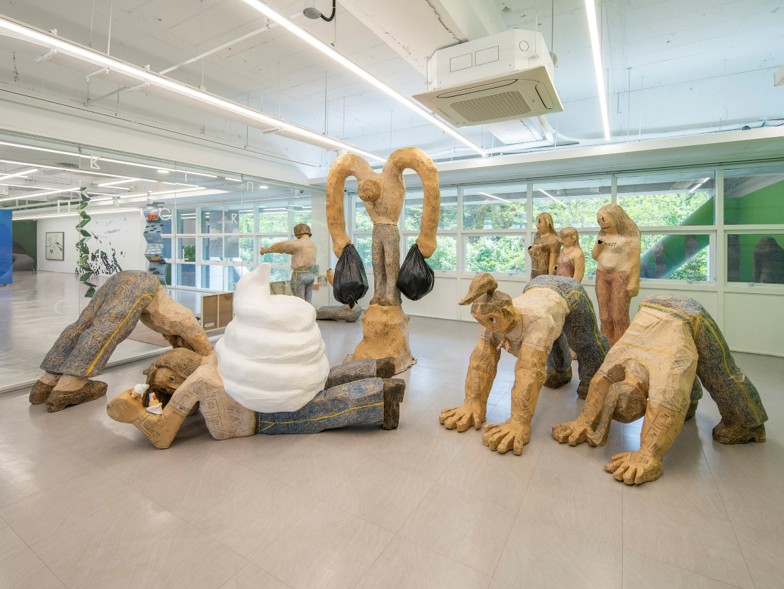 «Paper Mirror», Exhibition
View, 2023 / Seongbuk Children’s Museum of Art
«Paper Mirror», Exhibition
View, 2023 / Seongbuk Children’s Museum of Art
Sculptures as Talismans: Paper
Rituals and Prayers
Shin embeds handwritten prayers into her
sculptures—messages wishing protection for viewers or loved ones. Her creative
process resembles a spiritual ritual: paper is layered, text is repeated, and
the resulting face reflects accumulated emotion.
“I don’t just make sculptures—I make paper talismans,” she
says.
At Seoul Museum of Art (SeMA), her installation The
Future Reflected in My Heart allowed viewers to write their own
wishes and attach them directly to the large bust, encouraging physical and
emotional participation. For Shin, sculptures should not be fossilized objects
but living altars for collective hope and catharsis.
Hey CCTV, Watch Us Dance—Reclaiming Surveillance Through Play
In her 2024 exhibition 《The Art of the Attention-Seeker》 at the Busan Museum of Contemporary Art, Shin
presented Hey CCTV, Watch Us Dance, a bold reimagining of surveillance culture.
Instead of being passively observed, her figures face the cameras and perform,
turning surveillance into self-expression. For Shin, being a “performative
attention-seeker” is a strategic act of resistance—a way to amplify
marginalized voices and provoke public dialogue.
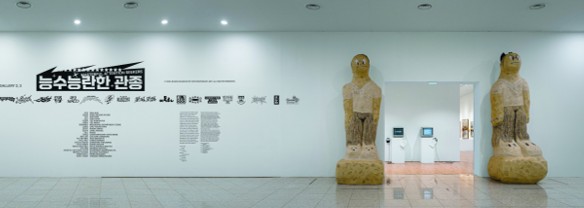
Exhibition View of 《The Art of the Attention-Seeker》, 2024 / Busan Museum of Contemporary Art
Her work Let’s Take a Selfie Together❤️ imagines teenagers posing for a group photo that could be seen as cringe-worthy, defiant, or revolutionary—all at once. She frames SNS activity as contemporary solidarity, where likes and tags become gestures of mutual support.
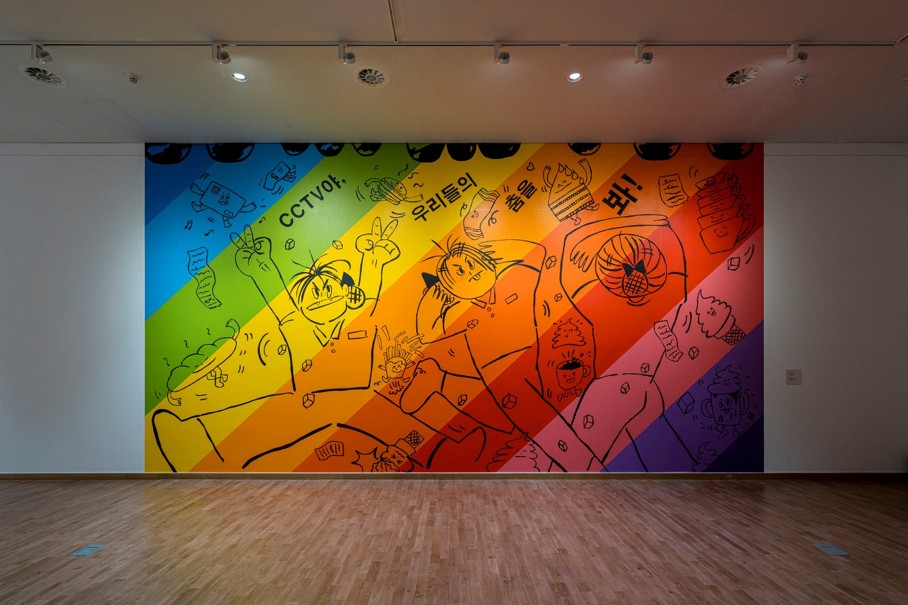 Hey CCTV, Watch Us
Dance›, 2024, Wall Drawing, 8220 × 4500 cm
Hey CCTV, Watch Us
Dance›, 2024, Wall Drawing, 8220 × 4500 cm
Cute, Fierce, and Alive: Shin
Min’s Sculptural Language
Shin openly describes herself as “a social media addict
with a bloated ego.” Her aesthetic may appear playful or even
cartoonish—“like something made in a high school art class,” she says—but it is
underpinned by sharp political critique and emotional intensity. Her use of
paper is intentional: fragile and ever-changing, it mirrors the precarity of
life under capitalism.
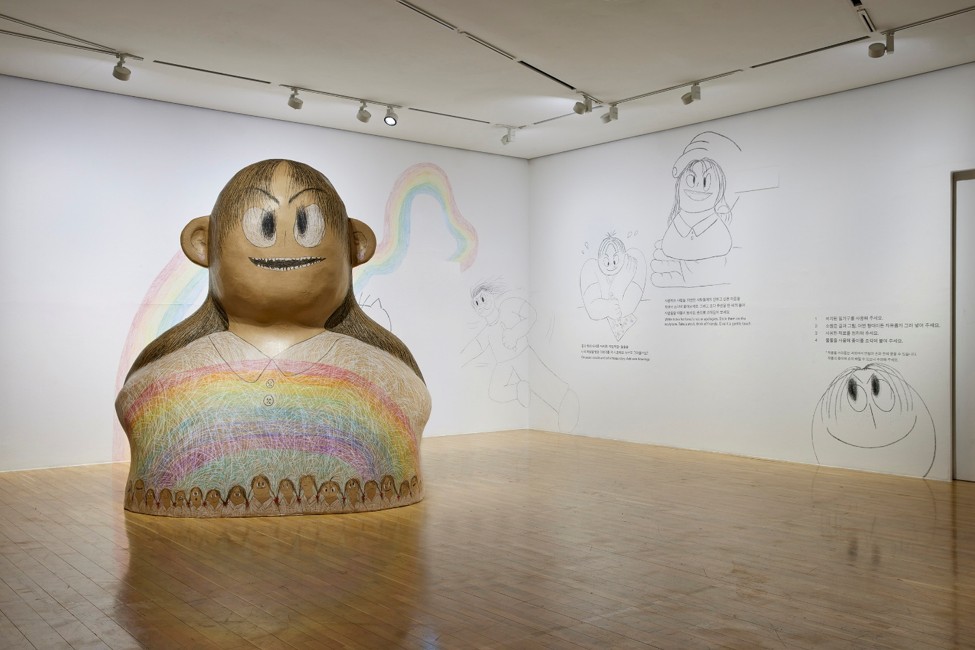 «Make a Wish», 2024, Seoul
Museum of Art, Buk-Seoul Branch
«Make a Wish», 2024, Seoul
Museum of Art, Buk-Seoul BranchHer
recent projects, such as «Make a Wish» (SeMA, 2024), invite tactile
interaction—encouraging visitors to touch, write on, and complete the artwork
themselves. “Even if it gets damaged,” she says, “I want the work to live and
breathe with people.”
Paper
Figures as Social Mirrors
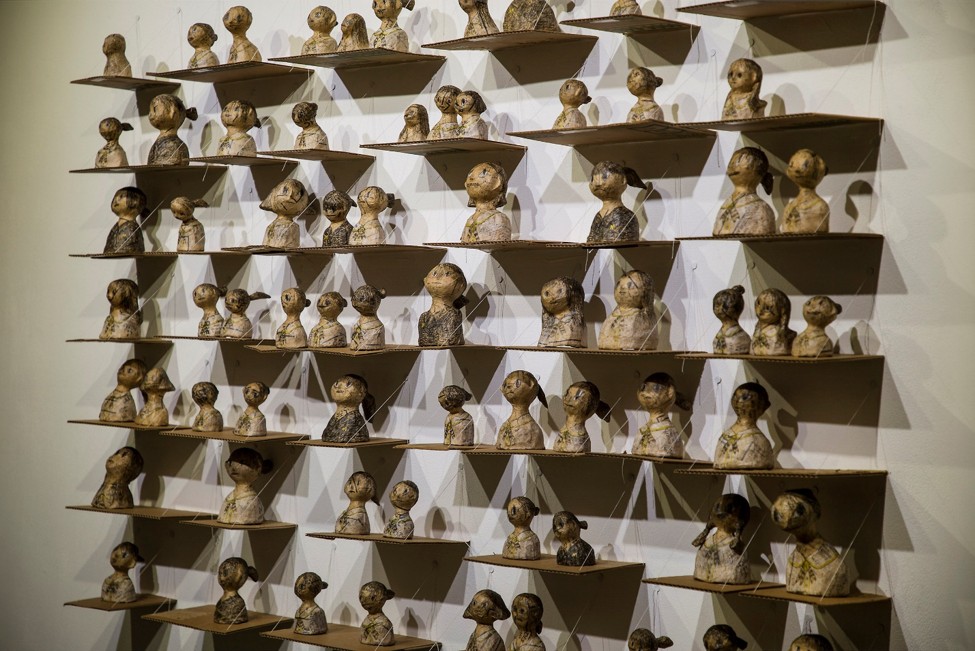 «Shackles and Nose Rings»,
2019, OCI Museum of Art
«Shackles and Nose Rings»,
2019, OCI Museum of ArtShin is currently expanding her scope to explore the
biological roots of war and gender, questioning the structural foundations
of violence and the place of the female body in that history. Her work
increasingly adopts a macro perspective, but her core remains the same: lived reality, feminist rage, and a yearning for transformation.
Her sculptures are not just objects; they are portraits
of the unheard, reflections of society’s blind spots, and amplifiers of
suppressed voices.
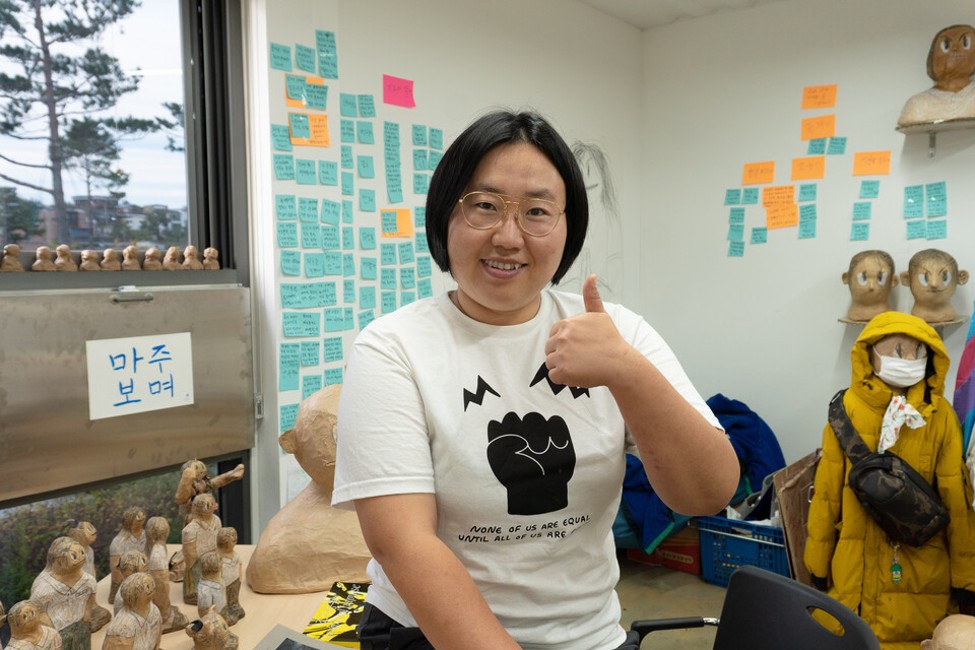 Open Studio Day in Chuncheon,
Artist Shin Min / Photo: Kim Ha-young, Courtesy of Women’s Economic Daily
Open Studio Day in Chuncheon,
Artist Shin Min / Photo: Kim Ha-young, Courtesy of Women’s Economic DailyShin Min (@fatshinmin) has participated in numerous major exhibitions, including 《The Art of the Attention-Seeker》 (Busan Museum of Contemporary Art, 2024), 《Make a Wish》 (SeMA, 2024), 《Paper Mirror》 (2023), 《Se-Mi》 (2022), 《Sculptural Impulse》 (SeMA, 2022), 《Voice》 (Jeon Tae-il Memorial Hall,
2021), 《Shackles and Nose Rings》 (OCI Museum, 2019), and 《Genre Allegory
– Sculptural》 (Total Museum of Contemporary Art,
2018).



